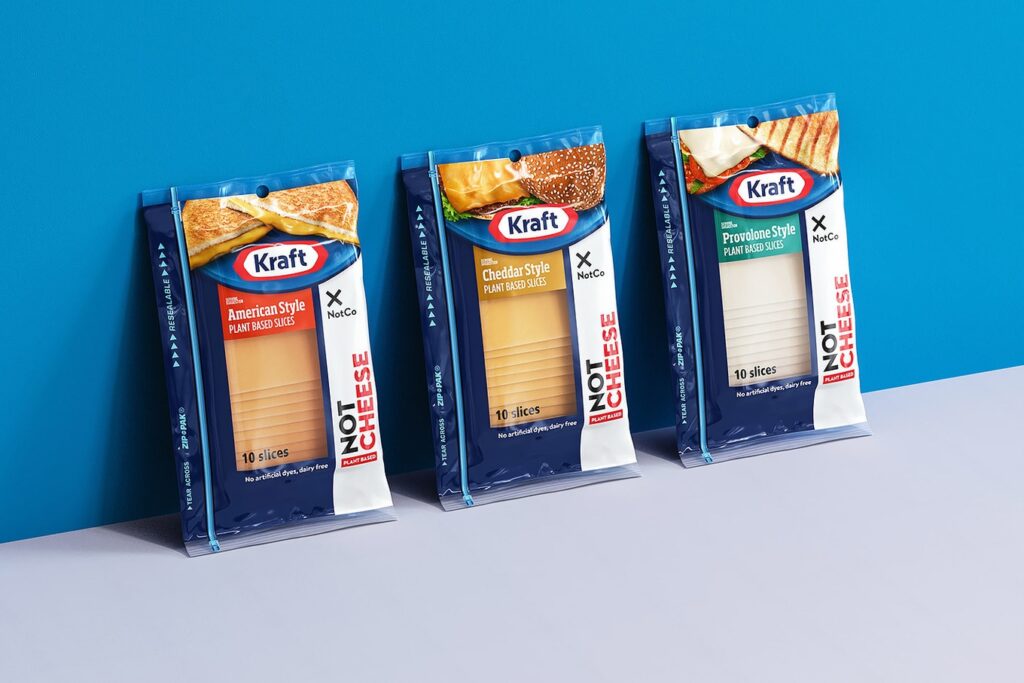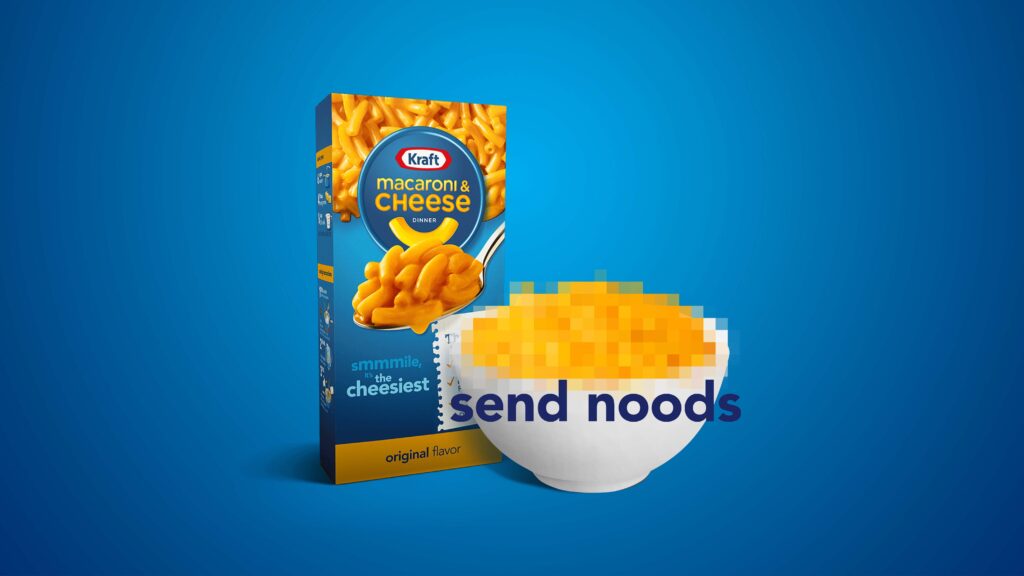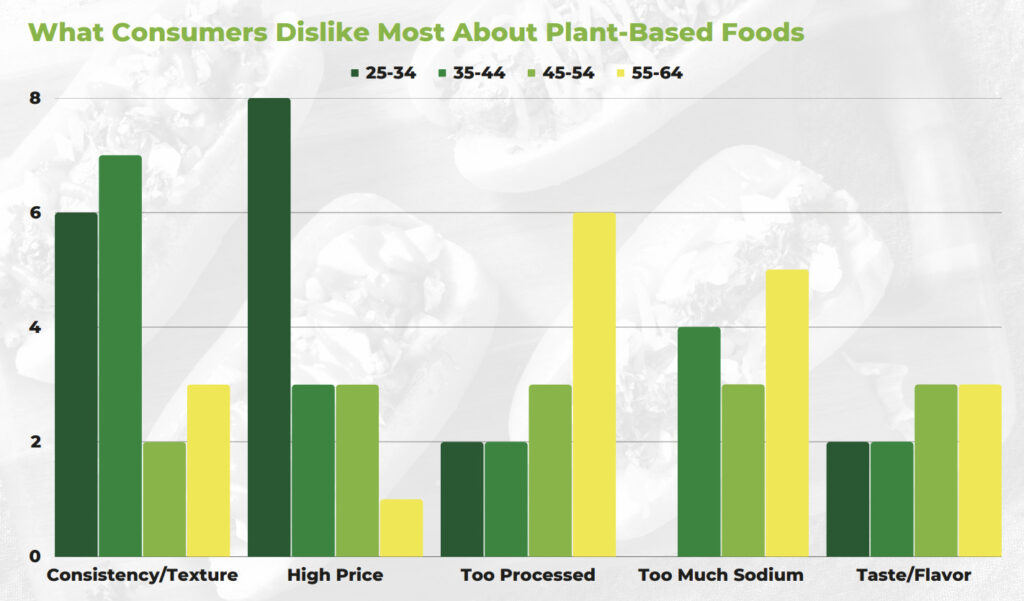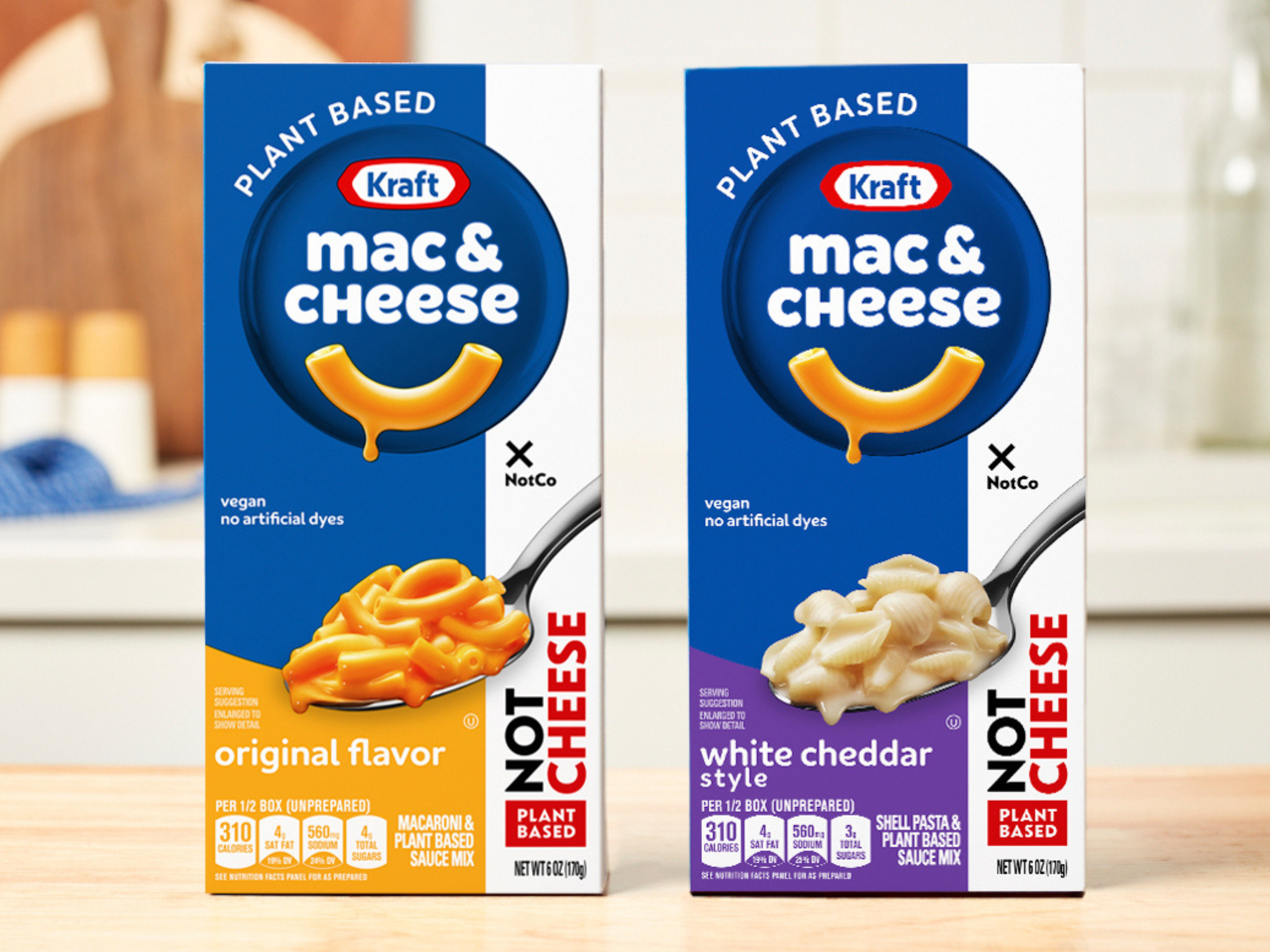Vegan Mac & Cheese: Kraft to Launch Plant-Based Version of Iconic Boxed Pasta with NotCo
5 Mins Read
Kraft has unveiled a vegan version of its famed boxed mac and cheese in the US, the third innovation as part of its collaboration with Chilean food tech startup NotCo. The NotMac&Cheese will roll out in supermarkets in December through early 2024 in two flavours.
Borne out of its Kraft Heinz Not Company venture with NotCo, Kraft will soon launch the third product to come out of the collaboration – and it promises to be the most sought-after yet.
The 85-year-old food giant is giving its famous boxed mac and cheese a vegan makeover, releasing two flavours of the pasta – original and white Cheddar – in the US, starting December through early 2024. Priced at $3.49 per box, it follows the launch of plant-based NotCheese Slices and NotMayo last year.

While this isn’t the first time Kraft has unveiled a vegan mac and cheese – it has been selling this in Australia since 2021 – it does mark its US debut. “The Kraft Heinz Not Company creates plant-based versions of fan-favourite foods that taste like the real thing, yet don’t require people to drastically change their eating habits,” said Lucho Lopez-May, CEO of the Kraft Heinz Not Company. “NotCo brings its revolutionary AI technology that has a proven track record in creating mouthwatering plant-based foods to Kraft.”
Is Kraft’s vegan mac and cheese healthy?
The Kraft Heinz Company and NotCo announced their link-up in February 2022, with the venture being kept completely separate from their respective companies, leveraging the market expertise and distribution channels of the former and the artificial-intelligence-led technology and innovation of the latter.
The idea was to create vegan versions of Kraft products using NotCo’s patented tech. The Chilean startup’s platform (called Giuseppe) uses AI and machine learning algorithms to match thousands of different plant-based ingredients and find the combinations best suited to replace animal-derived foods. It is the brains behind the company’s range of plant-based milks, chicken and burgers.
Kraft cited IRI data to reveal that the distribution of better-for-you mac and cheese products is outpacing the overall category by over six times. It’s joining more and more food manufacturers in being more vocal about the nutritional aspects of its products, something Americans are increasingly concerned about.

Research has suggested that more American Gen Zers want to go vegan for their health than the environment. And 1,022-person survey by the International Food Information Council (IFIC) in May found that health is the major factor behind US consumers eating vegan or vegetarian diets, with six in 10 choosing it.
Health is an omnipresent conversation in the US, with an alarming rise in rates of obesity and type 2 diabetes – over two-thirds (69%) of Americans are overweight and 36% are obese. Having said that, the Kraft vegan mac and cheese isn’t necessarily healthier than the original. When prepared according to its instructions – using almond milk and margarine – a cup of the pasta has 450 calories, compared to 350 calories for the original macaroni and cheese made with 2% milk and margarine.
The dry NotMac&Cheese mix (made from faba bean and coconut oil powder) is also higher in fat and carbohydrates. But, being a plant-based product, it doesn’t contain any cholesterol and additionally boasts higher protein and fibre content – the two nutrients Americans are trying to consume more than any other this year, according to the International Food Information Council (IFIC).
Taste and texture paramount for vegan cheese
Health is one aspect – taste is just as important. Numerator data reveals that vegan mac and cheese only has a 30% repeat purchase rate in the US, with consumers citing taste and texture as deterring factors. It chimes with IFIC research that shows taste is the top driver for food and beverage decisions among Americans.
Similarly, a study leveraging Kroger data from 60 million American households revealed that texture is the aspect Americans dislike most about vegan food, followed by high price (Kraft’s vegan mac and cheese is nearly three times as expensive as the original). In fact, when it comes to vegan cheese, 73% of US consumers are unhappy with the flavour (“plastic” or “unnatural”) and texture (“grainy”). They want cheeses that taste better, melt well and have a creamy texture.

The US plant-based market has faltered over the last couple of years, owing to the post-pandemic supply chain and inflationary pressures, as well as consumer concerns about overprocessed ingredients. According to SPINS data crunched by the Good Food Institute, the country’s vegan cheese sector saw $233M in dollar sales last year, a 2% drop from 2021. Retail sales (47 million) were also down by 5%.
Moreover, plant-based cheese only has a 5% household penetration rate, and makes up 1.1% of the overall market share. But this won’t discourage Kraft, a food giant that sells a million boxes of boxed mac and cheese every day, and had net sales of about $26B last year. Other players in this space include Amy’s, Annie’s Homegrown, Upton’s Naturals, Wicked Kitchen, and Gal Gadot-owned Goodles.
Now, the Kraft Heinz Not Company plans to continue its scale-up into several other categories and begin international expansion next year. Maybe we’ll all be whipping up a vegan boxed mac and cheese while watching old Hollywood alongside our dogs in no time, à la Brad Pitt.




